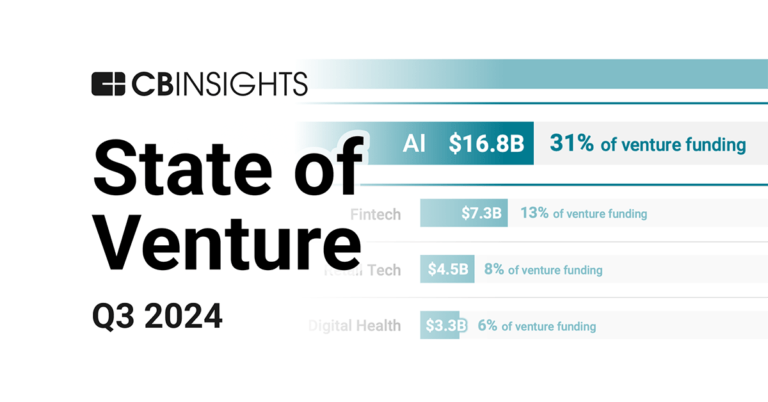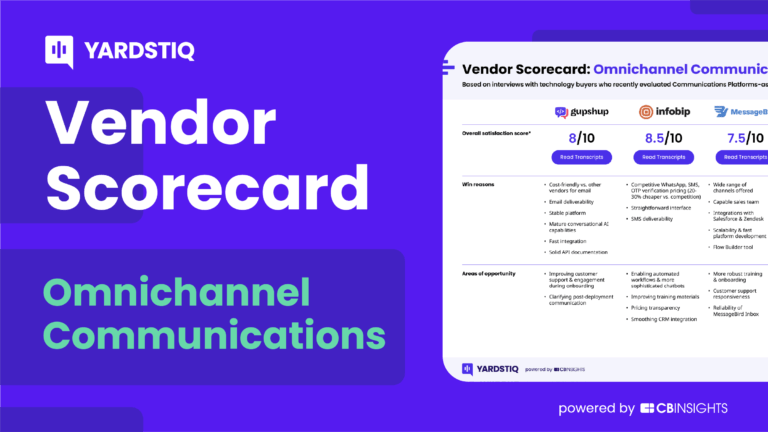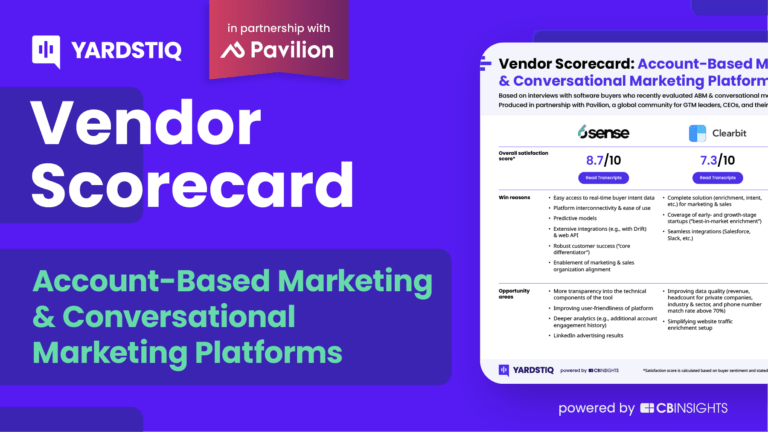
Zendesk
Founded Year
2007Stage
Take Private | AliveTotal Raised
$5.101BValuation
$0000Revenue
$0000Mosaic Score The Mosaic Score is an algorithm that measures the overall financial health and market potential of private companies.
+13 points in the past 30 days
About Zendesk
Zendesk focuses on customer service and experience solutions within the software industry. Its main offerings include customer support ticketing, live chat, artificial intelligence (AI) powered automation, and data analytics to enhance customer interactions. Zendesk primarily serves sectors such as retail, financial services, education, government, healthcare, and telecommunications. It was founded in 2007 and is based in San Francisco, California.
Loading...
ESPs containing Zendesk
The ESP matrix leverages data and analyst insight to identify and rank leading companies in a given technology landscape.
The employee support AI agents & copilots market consists of companies providing an internal, employee-facing interface to retrieve information using natural language cues. AI employee support platforms answer human resources questions related to topics such as employee benefits or workforce policies. These platforms can also address internal inquiries around workflow, locating documents and infor…
Zendesk named as Leader among 12 other companies, including Moveworks, Darwinbox, and Rezolve AI.
Loading...
Research containing Zendesk
Get data-driven expert analysis from the CB Insights Intelligence Unit.
CB Insights Intelligence Analysts have mentioned Zendesk in 3 CB Insights research briefs, most recently on Oct 3, 2024.

Oct 3, 2024 report
State of Venture Q3’24 Report
Oct 26, 2022 report
Top omnichannel communications companies — and why customers chose themExpert Collections containing Zendesk
Expert Collections are analyst-curated lists that highlight the companies you need to know in the most important technology spaces.
Zendesk is included in 2 Expert Collections, including Sales & Customer Service Tech.
Sales & Customer Service Tech
919 items
Companies offering technology-driven solutions for brands and retailers to enable customer service before, during, and after in-store and online shopping.
Artificial Intelligence
322 items
Zendesk Patents
Zendesk has filed 43 patents.
The 3 most popular patent topics include:
- information technology management
- customer relationship management
- computer telephony integration

Application Date | Grant Date | Title | Related Topics | Status |
|---|---|---|---|---|
9/23/2021 | 10/8/2024 | Static program analysis tools, Software testing, Computer security exploits, Network protocols, Remote desktop | Grant |
Application Date | 9/23/2021 |
|---|---|
Grant Date | 10/8/2024 |
Title | |
Related Topics | Static program analysis tools, Software testing, Computer security exploits, Network protocols, Remote desktop |
Status | Grant |
Latest Zendesk News
Oct 24, 2024
Also: Payment Card Theft Trends, Internet Archive Update Anviksha More ( AnvikshaMore ) • October 24, 2024 Image: Shutterstock Every week, ISMG rounds up cybersecurity incidents and breaches around the world. This week, the U.S. federal government took further steps to limit bulk data transfers to China, Visa warned about payment card theft, the Internet Archive is still recovering and the official tally for the Change Healthcare breach reached 100 million. Also, Ukrainian cyber defenders fought a phishing campaign, civil society groups urged European Union members to reject the UN cybercrime treaty, TA866 was up to no good and hackers used virtual hard drive files to spread malware. US Proposes Data Security Rules to Counter Foreign Threats The U.S. federal government took an additional step to issue regulations prohibiting or restricting the bulk transfer of Americans' sensitive personal data to countries including China. The proposal stems from a February executive order spurred by concern that foreign governments use commercial access to data such as biometric and genomic data, health care data, geolocation information, vehicle telemetry information and financial transaction data as a precursor to intimidation or blackmail and for their own artificial intelligence research and development (see: Biden Executive Order Targets Bulk Data Transfers to China ). The proposed rule, due to be officially published on Oct. 29, would also require data brokers engaged in restricted transactions to follow security requirements established by the Cybersecurity and Infrastructure Security Agency. Among the proposed security requirements is the maintenance of audit logs, identity management processes for identifying which clients have access to different data sets and data minimization. Some data might be best kept encrypted in order to deny access from a proscribed country, which also would include Russia. Visa Warns of Resurgence in Physical and Digital Scams Payment card services giant Visa said Wednesday that fraudsters are reverting to older methods, including credit card theft to quickly use stolen card information for gift cards, goods or online transactions. Scammers aren't entirely going back to the 20th century, the report allows. A new tactic highlighted by Visa in a biannual threats report is "digital pickpocketing," in which scammers initiate mobile payments by tapping a point-of-sale device near wallets in crowded areas. Government impersonation scams are also on the rise, with the average victim in the United States losing $14,000. Fraudsters pose as officials from agencies like the U.S. Postal Service and Internal Revenue Service, often shifting toward cash payments to evade detection. Authentication bypass scams also saw an uptick, with criminals exploiting one-time-password phishing to access accounts. Generative AI allowing thieves to pose as authoritative sources makes these scams more convincing. Visa also highlighted token provisioning fraud and ransomware as key threats, particularly for third-party providers. Attacks on third-party providers increased, affecting millions. Internet Archive Still Recovering From Cyberattacks The Internet Archive's crawl back to normalcy hit a bump when a threat actor sent many of the digital library’s users a spoofed email after apparently stealing a stolen access token for the site's Zendesk account. The nonprofit site earlier this month came under a sustained distributed denial-of-service attack. It also had to grapple with the theft of 31 million account holder data including email addresses (see: Internet Archive Data Breach Exposes 31 Million Accounts ). The archive on Monday restored its Wayback Machine online snapshot trawler in read-only mode, writing in an update that "features like uploading, borrowing, reviewing items, interlibrary loan and other services are not yet available." The update acknowledged the spoofed emails, saying a hacker "disclosed archive.org email and encrypted passwords to a transparency website, and also sent emails to patrons by exploiting a third-party helpdesk system." A hacker told Bleeping Computer the Internet Archive exposed Zendesk authentication tokens in a GitLab instance. Change Healthcare Breach Officially Affects 100 Million The ransomware attack on Change Healthcare has officially impacted 100 million individuals, states an updated breach report submitted to federal regulators. Initially, the Tennessee medical billing intermediary reported the breach affecting only 500 people in July, but the U.S. Department of Health and Human Services Office for Civil Rights has since revised the figure (see: Why Did Change Health Lowball Its 1st Breach Report to Feds? ) Company CEO Andrew Witty had previously hinted at the scale of the breach, testifying before Congress in April that the attack likely affected one-third of Americans or roughly 100 million people. The breach, attributed to the ransomware group BlackCat, compromised the protected health information of millions, including numerous healthcare providers. The attack caused weeks of IT outages at Change Healthcare, severely disrupting claims processing, payments and other critical healthcare operations for thousands of healthcare provider clients. The financial impact of the breach has been staggering, with UHG reporting to analysts that the incident has cost the company nearly $3 billion to date (see: Change Healthcare's Breach Costs Could Reach $2.5 Billion ). RDP Files Masquerade as Zero Trust Communications The Ukrainian Government Computer Emergency Response Team reported Tuesday a widespread phishing campaign targeting the military, state authorities and industrial enterprises. The emails, falsely promoting "integration" with Amazon services and Microsoft, contained malicious remote desktop protocol configuration files. When opened, the files established outbound connections to attackers' servers, potentially compromising sensitive local resources such as disks, network drives and printers. The activity, tracked as UAC-0215, has a broad geographical footprint and appears to have been in preparation since at least August. CERT-UA advised organizations to block RDP files at mail gateways and to restrict RDP connection capabilities. Civil Society Urges EU to Reject UN Cybercrime Convention Civil society organizations called on European Union members to reject the United Nations Cybercrime Convention during an upcoming General Assembly vote. The joint letter, signed by human rights groups, tech companies and security researchers, highlighted concerns over the draft treaty's broad scope, which could lead to increased government surveillance and erosion of democratic freedoms. Critics say the draft convention allows for intrusive domestic and cross-border surveillance with minimal limitations, risking misuse against dissenting voices. Provisions for collecting electronic evidence and international cooperation could facilitate human rights violations and conflict with existing EU data protection laws, signatories said. Financially Motivated Group Spreading Malware via Malspam A financially driven threat actor tracked as TA866, also known as Asylum Ambuscade, is spreading custom malware through maladvertising, researchers from Cisco Talos said . Active since at least 2020, TA866's uses malicious links in emails, PDFs, and ads to redirect victims to traffic distribution systems like 404 TDS, operated by threat actors offering malware installation services. Once users click, attackers deploy various malware strains, including Screenshotter for screen data collection, AHK Bot for credential theft, and Looper for persistence. Cisco Talos said that TA866 tailors its tools based on target environments, adjusting its infection chains post-compromise. After gaining initial access, the group conducts reconnaissance and may deploy additional malware such as the CSharp-Streamer remote access trojan. Researchers believe TA866 could be linked to other campaigns using the same tools. Malware Hidden in Virtual Disk Files Bypasses Antivirus and Email Security Cybercriminals are exploiting the limited detection capabilities of virtual hard drives to deliver malware such as Remcos and XWorm RATs through seemingly benign emails, researchers from Cofense Intelligence said . Traditional email security systems and antivirus software struggle to scan virtual drives, treating them as black boxes, typically leaving them unscanned or flagged as "unscannable." That's an opening for hackers to embed malicious content within virtual hard drive files, often altering file hashes to evade detection. In tests, only one out of 62 antivirus engines on VirusTotal detected malware delivered through these files. Once opened, malicious .vhd and .vhdx files trigger malicious payloads. Cofense said this type of attack appears targeted at older Windows systems, which are more susceptible to automatic malware execution via virtual disk files. Sir Isaac Newton Has a Verified Google Scholar Profile A surprising discovery surfaced on Google Scholar: Sir Isaac Newton, the Enlightenment-era physicist and polymath, appears as a "Professor of Physics" at MIT with a "verified email" from the institution. "Good for him," opined Jay Cummings, a math professor at California State University who shared the finding on X. Google Scholar only verifies the email address associated with the profile, not the user's identity. Setting up a profile involves entering basic information and can include an email verification step, which cab be easily completed in moments. Other Stories From Last Week
Zendesk Frequently Asked Questions (FAQ)
When was Zendesk founded?
Zendesk was founded in 2007.
Where is Zendesk's headquarters?
Zendesk's headquarters is located at 989 Market Street, San Francisco.
What is Zendesk's latest funding round?
Zendesk's latest funding round is Take Private.
How much did Zendesk raise?
Zendesk raised a total of $5.101B.
Who are the investors of Zendesk?
Investors of Zendesk include Hellman & Friedman, Blue Owl Capital, HPS Investment Partners, Apollo Global Management, GIC and 16 more.
Who are Zendesk's competitors?
Competitors of Zendesk include Gorgias, Drift, LiveVox, Uniphore, Front and 7 more.
Loading...
Compare Zendesk to Competitors

Forethought uses artificial intelligence (AI) to help with customer service. It assists customer support employees with triaging tickets, finding answers to common issues, training new hires, and streamlining the entire support ticket lifecycle on one generative AI platform. The company was founded in 2017 and is based in San Francisco, California.
Zoho focuses on providing a cloud software suite for businesses across various sectors. The company offers a range of products that help businesses manage customer relationships, secure email services, financial platforms, human resources processes, project management, and more. Zoho primarily sells to businesses of all sizes, from startups to large enterprises, across various industries. Zoho was formerly known as AdventNet. It was founded in 1996 and is based in Chennai, India.
Bernini Labs operates as a technology company. It focuses on and develops a vertical software as a service (SaaS) product. The company's main offering is a specialized software-as-a-service solution designed for a specific industry or business need. It is based in Atlanta, Georgia.

Avaya is a company focused on providing customer experience (CX) and employee experience (EX) solutions within the cloud collaboration and contact center industries. The company offers a range of products including contact center solutions available on-premises and in private or public cloud configurations, unified communications, and artificial intelligence-powered technologies designed for customer and employee interactions. Avaya primarily serves sectors such as healthcare, education, financial services, media and entertainment, and the public sector. It was founded in 2000 and is based in Morristown, New Jersey.
Microsoft Dynamics 365 is a suite of intelligent business applications in the CRM and ERP domains. It offers services that integrate customer relationship management, enterprise resource planning, and AI capabilities to streamline business processes and enhance customer engagement. The company primarily serves sectors that require advanced business solutions, such as manufacturing, financial services, healthcare, and retail. It was founded in 2016 and is based in Redmond, Washington.
Banza specializes in digital transformation and business process automation within the banking and retail sectors. The company offers customer relationship management (CRM) and business process management (BPM) solutions to streamline sales, marketing, and customer service processes. Banza primarily serves the banking and retail industries with comprehensive solutions for credit management, sales, customer service, and omnichannel customer interactions. It was founded in 2020 and is based in Uzhhorod, Ukraine.
Loading...
